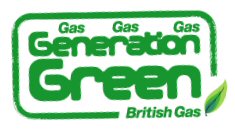Bathampton Meadows vs Park And Ride: Guess Which Wins?
Posted by keith on 27th May 2009
I was taking a bus into the centre of a nearbye town a few months ago, and noticed that the development of a new “Park and Ride” scheme was nearing completion — so said the signs. It was being promoted as part of a “sustainable” transport policy, yet I was taking the bus all the way from my town to this town, but could well have caught the train instead. If I had lived a bit closer I might have considered cycling, except there are no cycle paths to speak of. This got me pondering the logic of Park and Ride with my cynical mind, and I quickly realised that it was simply a way of drawing more people from outlying areas into major towns who would otherwise shop locally, or drive to a shopping mall because there was too much congestion in the town. Park and Ride, I concluded, exists for purely economic reasons.
Go forwards to the present day, and I find this on the Save Bathampton Meadows web site:
Park and Rides are an out-moded form of traffic management, proven to have a minimal impact on reducing congestion. As Henrietta Sherwin, Vice Chair of the South West Campaign to Protect Rural England states:
“Park and Rides were conceived in the early 1970s before transport policy had moved towards demand management and trying to restrict car traffic; they are an out of date policy and no substitute for the development of an integrated public transport network particularly with an ageing population.”
“Park and Rides were initially sold as a green transport intervention until it was discovered that they can undermine existing public transport and actually create car mileage. Should limited resources be spent to encourage car access to Bath? Park and Rides are expensive and have a considerable environmental impact but a very marginal congestion benefit.”
I agree that they were originally sold as a green transport intervention, but I am willing to bet good (or bad) money that the initial motivation was economical — more people can come into a town and spend money if you let them drive most of the way rather than encourage them to go by public transport or (obviously) use their local facilities.
I wouldn’t have been so interested in an article about the further concreting over of the countryside surrounding the historic city of Bath, England, in Monday’s Guardian, had I not taken a trip there last week.
Environmental campaigners and residents are vowing to fight controversial plans to turn historic meadows close to the river Avon in Bath into a huge car park.
Bath and North East Somerset council wants to build a park and ride for 1,400 cars on land to the east of the city, though it lies within the green belt and is bordered by an area of natural beauty and a nature reserve.
More than 500 people have written objecting to the £6m plan, claiming that it will “desecrate” Bathampton Meadows. Natural England, the independent public body dedicated to protecting the urban and rural environment, has also raised concerns.
But at a heated meeting last week councillors supported the plans, which will now be sent to Hazel Blears, the communities secretary, for her approval.
Protesters say the scheme will ruin the meadows and become an eyesore visible from miles away. They are calling for the council to come up with more radical and more sustainable solutions.
It was while walking through the maze of soulless shopping streets near to the railway station, trying to dodge construction vehicles and step over temporary paving abberations, that I realised that the new Southgate Shopping Centre was utterly superfluous. Here’s a picture of what the developers think part of it might look like when it is complete:
I particularly like the ironic bicycles dominating the left hand side of the scene, while the yawning commercial edifice lurks in the background, coaxing people in to buy more pointless crap that, even had they wanted pointless crap, people could already have bought elsewhere in Bath, or anywhere else they live for that matter. It is such a marvellous coincidence that the new bus station, which will act as the terminus for the Pointless Park and Ride schemes, just happens to be right next to the new Southgate Shopping Centre. So, as the Park and Riders alight from their multi modal journey (oh, sorry, that should read “largely car-based journey, which involved a considerable diversion from the original route, and had a bit of bus tacked onto the end”) they are immediately presented with a phenomenal shopping opportunity.
I have little doubt that the loss of meadow will happen, and it will keep heppening until we lose our twin addictions to driving and shopping. Maybe if the existing Park and Rides start emptying then the scheme (and the other three to be expanded, which are also going to slice further into the countryside) will be abandoned as a loss-maker. Somehow, though, I get the feeling this will be another case of the customer is always right: even if they have been brainwashed.
Posted in Government Policies, Public Sector Hypocrisy, Techno Fixes | 1 Comment »














